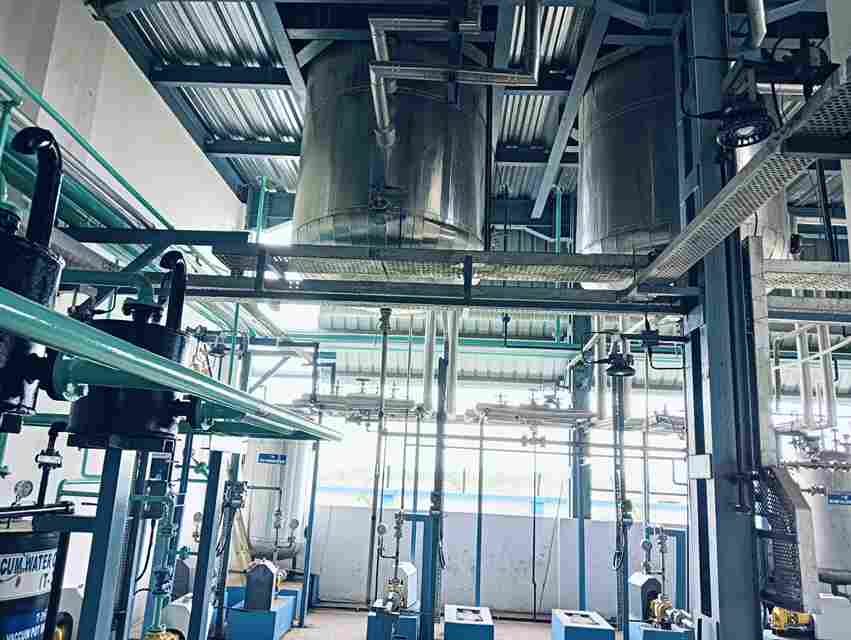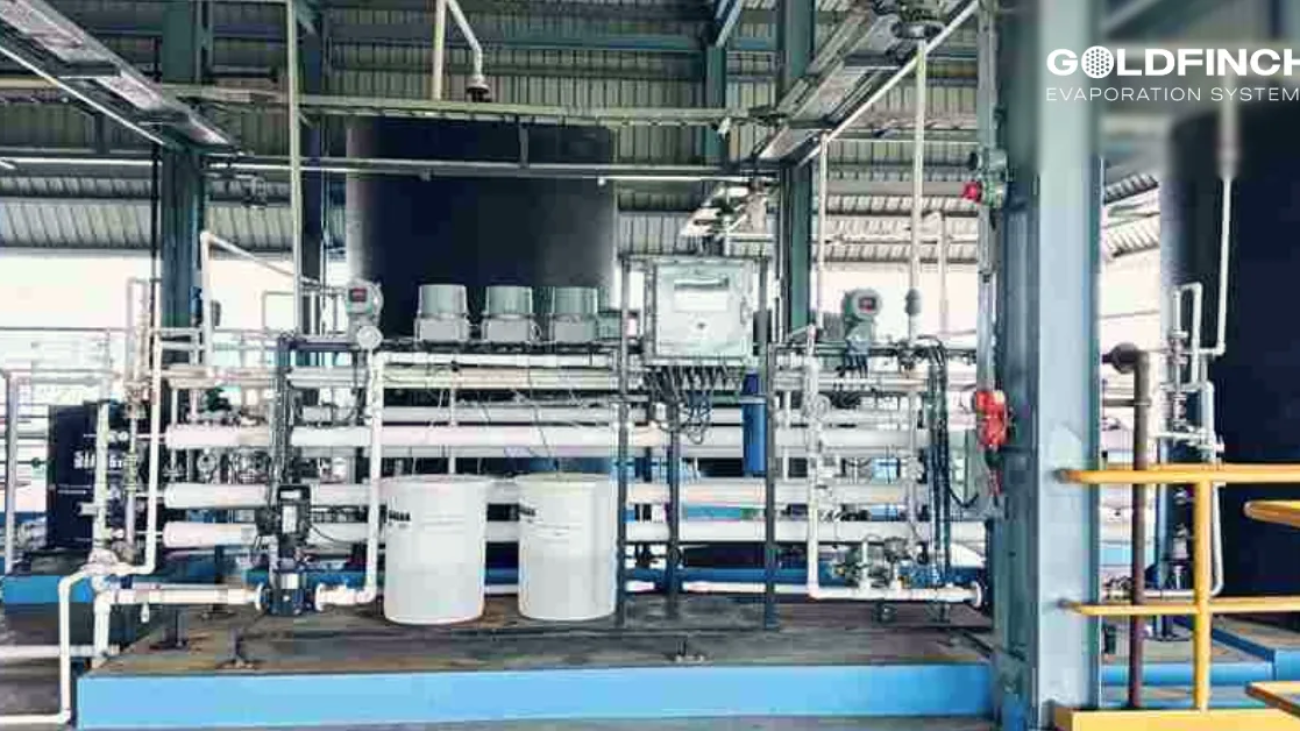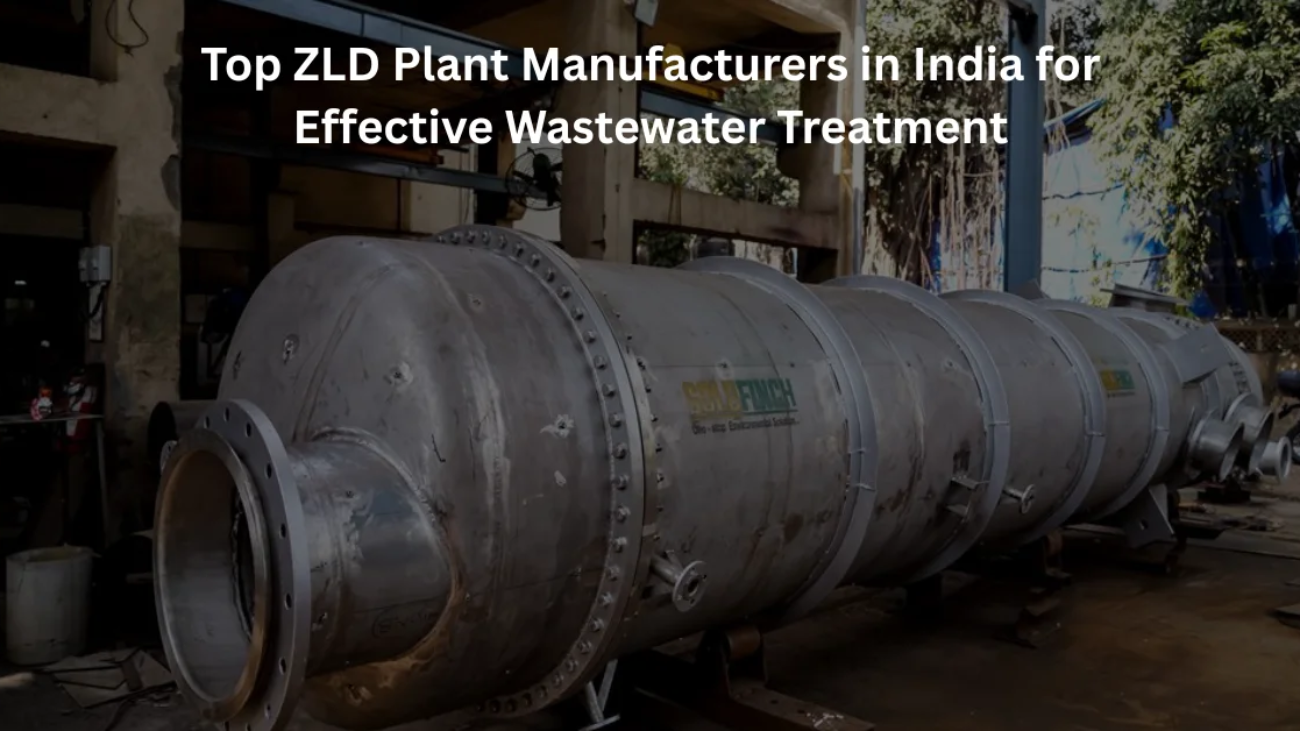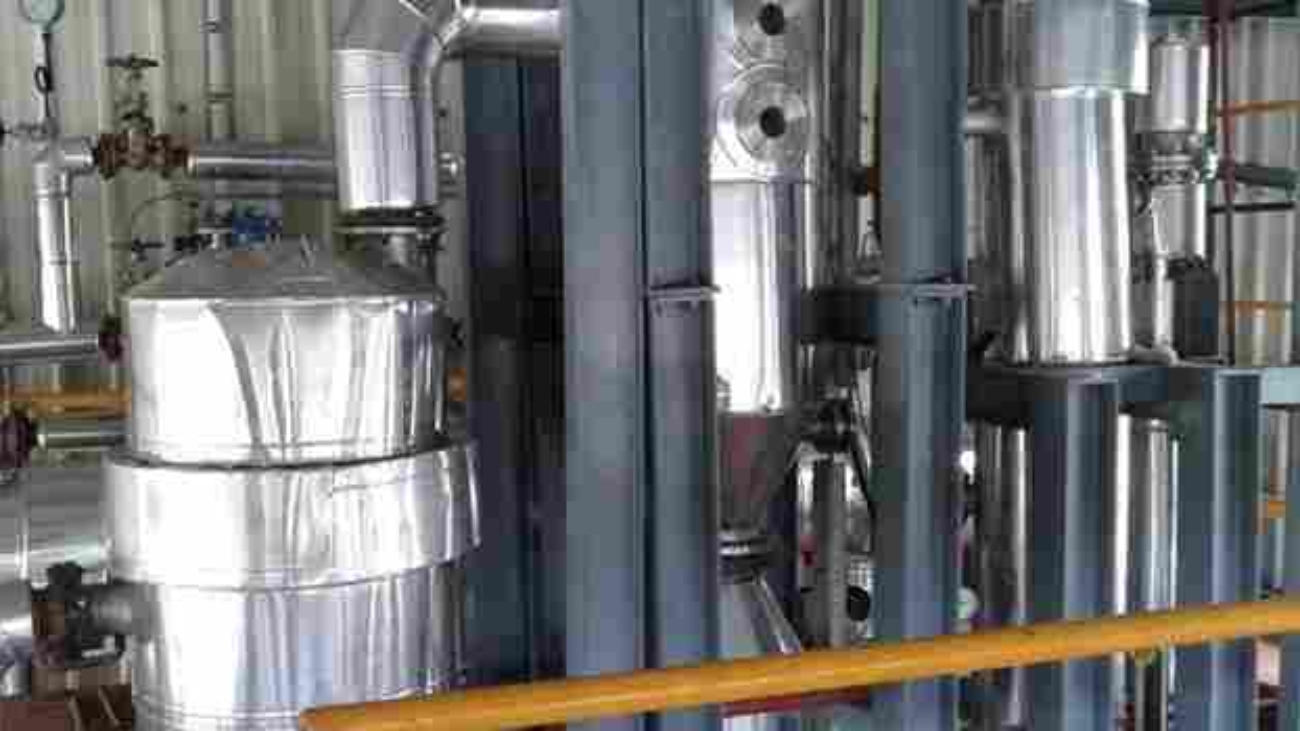As industries continue to expand across India, the challenge of managing wastewater treatment effectively has never been more critical. Industrial operations generate large volumes of contaminated water, i.e., industrial wastewater. If not treated properly, this can severely harm human health and the environment. This is where advanced wastewater treatment plants come into play, helping businesses treat, recycle, and even reuse water while complying with environmental regulations.
One of the most trusted names in this industry is Goldfinch Evaporators, a leading manufacturer of advanced evaporation systems and Zero Liquid Discharge (ZLD) solutions in India. Know how Goldfinch Evaporators is transforming the landscape of industrial wastewater treatment through innovation, efficiency, and sustainability.
What Is Wastewater Treatment and Why Is It Important?
Wastewater treatment refers to the process of removing pollutants from used water so it can be safely reused or discharged. In industrial settings, wastewater can contain dangerous substances like chemicals, heavy metals, dyes, oils, and organic matter. Without a proper wastewater treatment process, releasing such contaminated water into the environment can cause soil degradation and water pollution.
Also, with water scarcity in many parts of India, wastewater treatment becomes a strategic necessity. Industries that implement efficient water treatment plant processes can reduce their dependency on freshwater sources, cut operational costs, and support long-term environmental sustainability.
Key Stages of the Industrial Wastewater Treatment Process
Every wastewater treatment plant designed for industrial applications follows multiple stages to ensure complete purification. The process involves 4 stages, which are:
1. Primary Treatment
This stage focuses on removing suspended solids and floating materials using mechanical screens, sedimentation tanks, or flotation devices.
2. Secondary Treatment
Involves biological methods such as activated sludge or bio-reactors to break down organic matter and reduce Biological Oxygen Demand (BOD).
3. Tertiary Treatment
This advanced stage removes any remaining nutrients, toxins, or dissolved solids through filtration, chemical dosing, or membrane processes.
4. Zero Liquid Discharge (ZLD)
The final frontier in sustainable water management, ZLD systems recover almost all the water from effluents, leaving behind solid waste for safe disposal.
Goldfinch Evaporators: Redefining Industrial Wastewater Treatment in India

Goldfinch Evaporators has over 40 years of experience in building custom-engineered wastewater treatment and evaporation systems for diverse industries. Their innovative solutions include:
● Multiple Effect Evaporators (MEE)
MEE systems use multiple stages of evaporation to concentrate waste streams while optimizing energy use. They are ideal for chemical industries and applications with high dissolved solid content.
● Mechanical Vapour Recompression Evaporators (MVRE)
MVRE systems recycle energy within the process by compressing and reusing vapour, making them one of the most energy-efficient methods for industrial wastewater treatment.
● Zero Liquid Discharge (ZLD) Systems
ZLD systems are Goldfinch’s flagship offering. These compact, high-efficiency plants ensure complete water recovery, making them indispensable for industries in water-scarce regions or those bound by strict discharge regulations.
With over 50 successful ZLD installations across power plants, textile factories, chemical processing units, and pharmaceutical industries, Goldfinch has proven its ability to design solutions that are both scalable and industry-specific.
Applications Across Key Industries
Goldfinch Evaporator’s wastewater treatment technologies have been deployed across a wide range of sectors, which include:
- Textile Industry: Known for its heavy use of dyes and chemicals, this industry benefits from MEE and ZLD systems that handle high chemical and colour loads.
- Pharmaceuticals: Complex chemical effluents are treated using MVRE systems and advanced filtration technologies.
- Power Plants: Cooling tower blowdowns and process water are recycled using ZLD, reducing the amount of freshwater needed.
- Food and Beverage: Biological and tertiary treatments are applied to treat high organic loads and grease content.
- Mining and Metals: Heavy metals and toxins are separated via chemical treatment and filtration.
Goldfinch Evaporators has tailored each wastewater treatment plant to specific industry needs. Thus, ensuring maximum efficiency and environmental compliance.
Water Recycling: A Key Component of Modern Wastewater Treatment
Goldfinch Evaporator’s systems enable industries to recover high-quality water suitable for reuse in operations, cleaning, or even boiler feed applications. Their water treatment plant process reduces the demand for fresh water, lowers operational costs, and minimizes the plant’s ecological footprint. So, recycling industrial wastewater isn’t just an environmental measure, but also great for your business.
Goldfinch’s commitment to sustainability is evident in its ZLD offerings. These systems recover up to 95% of the water. They also convert the waste into solid forms that can be safely disposed of, thus ensuring complete purification and zero discharge.
Why Choose Goldfinch Evaporators?
Reliability, customization, and efficiency are key aspects when looking for a wastewater treatment plant provider. Goldfinch Evaporators is the perfect partner for all your evaporation and wastewater purification needs deu to our:
- Proven Track Record: Over 50 successful projects across diverse industries.
- Tailored Solutions: Designs systems that suit the specific chemical composition and volume of effluent.
- Compact Designs: Saves space without compromising on capacity.
- Energy Efficiency: Utilizes MVRE and MEE systems to reduce energy costs.
- Environmental Commitment: Enables industries to meet environmental regulations.
Conclusion: Invest in Sustainable Wastewater Treatment in India with Goldfinch Evaporators
As industries grow, the need for effective wastewater treatment solutions is increasing. By adopting cutting-edge technologies like ZLD, MEE, and MVRE, businesses can achieve regulatory compliance, reduce freshwater consumption, and showcase their commitment to sustainability.
Whether you’re in textiles, pharma, power, or chemicals, Goldfinch Evaporators is the best partner you need to transform your wastewater into a usable water resource. With a legacy of innovation, precision engineering, and industry expertise, Goldfinch Evaporators is known as one of India’s top manufacturers of Zero Liquid Discharge plants, wastewater treatment plants, and industrial evaporators.




